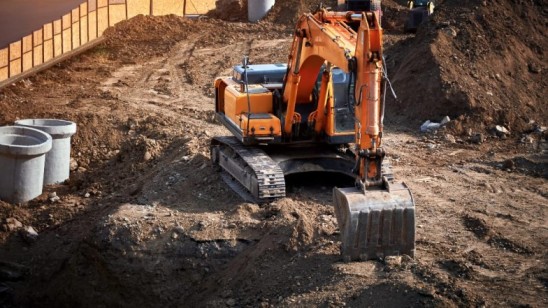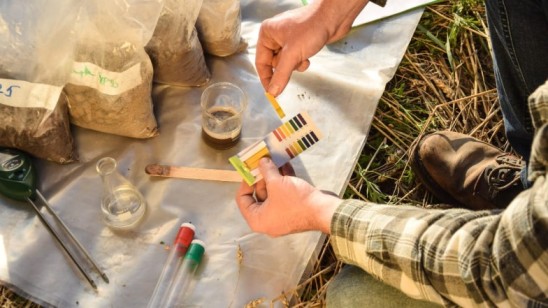
Soil Testing for Construction: A Crucial Foundation for Your Project
Soil is the bedrock upon which our structures are built. Its properties play a vital role in determining the stability of any construction project. Whether you are planning a residential building, a commercial complex, or infrastructure development, understanding the characteristics of the soil at your site is essential. To ensure a solid foundation and minimize risks, Soil Testing for Construction has become an indispensable part of modern engineering practices. Conducting Soil Testing for Construction in Assam, where geological challenges vary, is crucial for any construction to be successful.
Understanding Soil Testing for Construction
What is Soil Testing for Construction?
Soil testing is a systematic process that involves a series of laboratory and field analyses to evaluate the physical, chemical, and mechanical characteristics of the soil at a proposed construction site. This comprehensive assessment allows engineers to determine the soil’s suitability for construction and identify potential challenges that might affect the project’s success.
By examining the soil, builders can make informed decisions about design, construction foundations, and techniques to ensure the structure’s safety and stability.
Key Properties Analyzed in Soil Testing for Construction
- Soil Type: Identifies whether the soil is sand, clay, silt, or a combination of these. Each soil type has unique properties that affect its strength, stability, and suitability for construction.
- Soil Strength: Determines the soil’s ability to withstand loads without deforming. This analysis is crucial in ensuring soil stability and designing foundations that can support the weight of the structure.
- Soil Compressibility: Measures how much the soil will settle under pressure. Excessive settlement can compromise the structural integrity of a building, making this analysis critical for determining the soil stability of a site.
- Soil Permeability: Evaluates the rate at which water can pass through the soil. High permeability might lead to waterlogging, while low permeability can result in drainage issues.
- Soil Contamination: Checks for the presence of pollutants or hazardous substances. Soil contamination can pose significant risks, requiring remediation before construction begins.
The Importance of Soil Testing for Construction
Soil testing for construction provides several benefits, including:
1. Structural Stability
The stability of any structure relies heavily on the strength and properties of the soil beneath it. By analyzing the soil, engineers can design construction foundations that are compatible with the soil’s characteristics, ensuring that the building can withstand intended loads and environmental stresses.
2. Cost Savings
Identifying potential soil issues early in the project helps avoid expensive modifications or repairs later in the construction process. For instance, if weak soil is detected, engineers can recommend alternative foundation designs or soil strength analysis to improve the site’s capacity to bear loads, saving time and money.
3. Risk Mitigation
Soil testing for construction helps identify and address potential risks, such as soil erosion, landslides, or soil contamination. By proactively addressing these challenges, builders can prevent accidents and ensure the safety of the structure and its occupants.
4. Compliance with Regulations
Many building codes and regulations mandate soil testing as part of the permitting process. Conducting soil tests ensures compliance with these standards, avoiding legal complications and project delays.
The Importance of Soil Testing for Construction in Assam
Assam, a northeastern state in India, is known for its diverse topography, ranging from plains to hills, and unique geological conditions. These factors make soil testing for construction in Assam even more critical for construction projects.
1. Seismic Activity
Assam lies in an earthquake-prone zone classified as Seismic Zone V. This high seismic risk necessitates soil testing to identify areas susceptible to liquefaction—a phenomenon where the soil loses its strength and behaves like a liquid during an earthquake. Proper soil testing for construction can help mitigate such risks and guide the construction of earthquake-resistant structures.
2. Erosion
The state’s hilly terrain and heavy monsoon rainfall make it prone to soil erosion. Construction projects in Assam must account for erosion-prone areas and incorporate measures such as retaining walls and vegetation stabilization. Soil testing for construction provides the necessary data to design effective erosion control strategies.
3. Waterlogging
In some areas of Assam, particularly in the floodplains of the Brahmaputra River, waterlogging is a common problem. Testing the soil’s permeability can help design efficient drainage systems to prevent water accumulation, which can weaken the foundation and affect the building’s longevity.
4. Contamination
Industrial and agricultural activities in certain regions of Assam have led to soil contamination. Soil testing for construction is essential to detect harmful substances like heavy metals or chemicals that may pose risks to both construction and public health. Remediation measures can then be implemented to ensure a safe building site.

Common Soil Testing for Construction Methods
Several reliable methods are employed for soil testing for construction, including:
1. Visual Inspection
The simplest method involves observing the soil’s color, texture, and appearance. While basic, it can provide initial clues about soil type and potential issues.
2. Laboratory Tests
Advanced laboratory tests measure critical parameters, such as:
- Moisture content
- Particle size distribution
- Shear strength
- Consolidation characteristics
These tests are precise and provide detailed insights that guide engineering decisions regarding soil strength and the choice of construction foundation.
3. Field Tests
Field tests, such as the Standard Penetration Test (SPT) and Cone Penetration Test (CPT), are conducted on-site to assess the soil’s load-bearing capacity and other properties. These tests provide immediate data, complementing laboratory analyses and helping to evaluate the overall soil stability of a site.
Why Choose Professional Soil Testing Services for Construction?
Professional soil testing for construction services offer numerous advantages over DIY or ad-hoc approaches:
1. Accuracy and Reliability
Qualified professionals use advanced equipment and techniques to ensure precise and dependable results. This level of accuracy is essential for making informed design and construction decisions.
2. Compliance with Standards
Professional laboratories adhere to industry standards and government regulations, ensuring that the test results are valid and legally compliant.
3. Comprehensive Reports
Professional soil testing services provide detailed reports that include data, analyses, and recommendations. These reports are easy to understand and directly inform project planning and execution.
4. Timely Delivery
Professional services deliver results within agreed timelines, helping you stay on schedule and avoid project delays.
Conclusion: Why Soil Testing for Construction is Essential
Soil testing for construction is an essential part of the construction process, providing the foundation for safe, stable, and durable structures. In regions like Assam, where unique geological and environmental challenges exist, the importance of soil testing for construction cannot be overstated. By understanding the soil’s characteristics, you can design structures that withstand the test of time and environmental pressures.
Whether you’re building in Assam or elsewhere, partnering with professional soil testing services ensures that your construction project is based on a solid, reliable foundation. Soil testing methods help mitigate risks, enhance safety, and ensure the longevity of the structure. Invest in thorough soil testing to secure the success of your project and avoid costly mistakes in the future.



